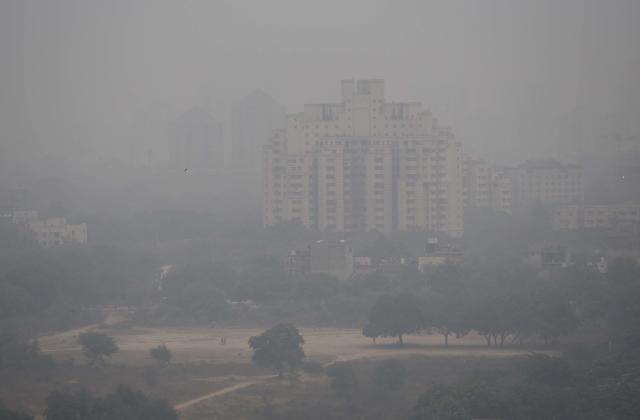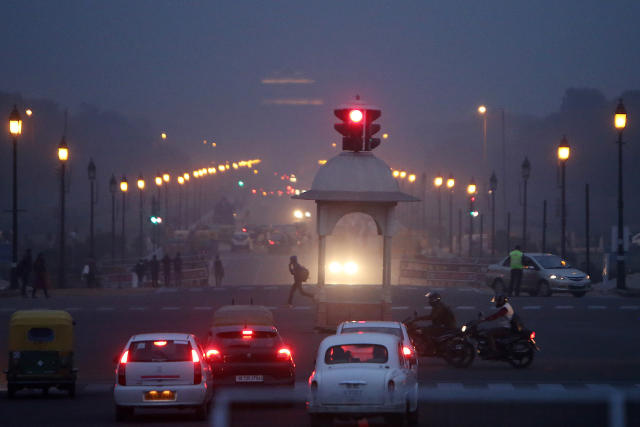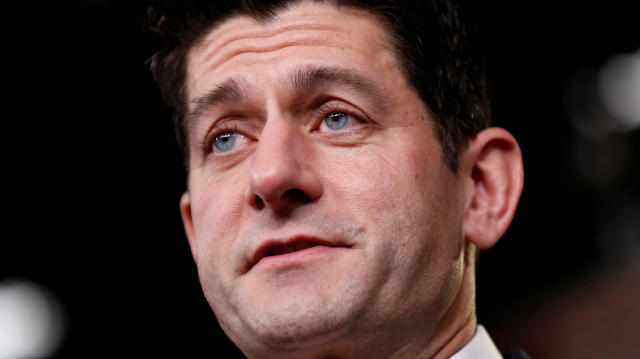ThinkProgress
American democracy is failing. The courts are finally starting to notice.
Democracy’s lost decade.
Ian Millhiser January 24, 2018
 Washington, D.C. – January 20, 2017: Former Democratic Presidential nominee Hillary Clinton and former President George W. Bush attend Donald Trump inauguration on the West front of the U.S. Capitol. (Photo by Joe Raedle/Getty Images)
Washington, D.C. – January 20, 2017: Former Democratic Presidential nominee Hillary Clinton and former President George W. Bush attend Donald Trump inauguration on the West front of the U.S. Capitol. (Photo by Joe Raedle/Getty Images)
There is something profoundly wrong with the United States of America’s system of government.
For proof, briefly take stock of the last ten years in American democracy, in which a combination of factors — the filibuster, the way we draw legislative districts, Senate malapportionment, and the Electoral College — converged to rob American voters of a meaningful ability to choose their own leaders.
- In 2008, President Obama won a resounding victory, defeating Republican Sen. John McCain by nearly 10 million votes. Democrats also won commanding majorities in both houses of Congress, with Democrats holding 60 seats in the Senate at their peak. Nevertheless, the rump Republican minority was able to wield the filibuster to block many Democratic priorities altogether, and to effectively force Democrats to water down major legislation such as the stimulus and the Affordable Care Act, because the most conservative Democrats’ (and, sometimes, even some Republicans’) votes were needed to pass such bills.
- In 2010, in part because the watered down stimulus did not juice up the economy enough to keep the incumbent party from being blamed for the ongoing effects of the recession, Democrats took a bath at the polls. Though Democrats recovered their standing with the voters in the very next federal election, their deep losses in 2010 had profound consequences because they gave Republicans control of many crucial state legislatures and governors’ mansions during a redistricting cycle. Republicans drew state legislative and congressional maps that were so aggressively gerrymandered that, in some states, Republicans won over 70 percent of the congressional seats even in election years where Democrats won the popular vote.
- In 2012, President Obama won reelection. Democratic U.S. House candidates also won nearly 1.4 million more votes nationwide than their Republican counterparts. Yet, in large part due to gerrymandering, Republicans enjoyed a commanding 233-200 majority in the House at the beginning of the 113th Congress. This undemocratic result not only prevented Democrats from enacting legislation that could have fired up their base, stimulated the economy, and improved their party’s chances of winning the 2014 and 2016 elections, it also gave Republicans the leverage to shut down the government in 2013.
- Meanwhile, Republicans enjoyed even bigger windfalls in state-level races. In 2012, for example, Republican candidates for the state assembly received “48.6% of the two-party statewide vote share for Assembly candidates and won 60 of the 99 seats in the Wisconsin Assembly.” Two years later, they “received 52% of the two-party statewide vote share and won 63 assembly seats.” More recently, in the 2017 election that resoundingly elected Democratic Virginia Gov. Ralph Northam, Democratic candidates of the House of Delegates outperformed Republican candidates by more than 9 percentage points. Yet Republicans still enjoy a narrow 51-49 majority.
- In February of 2016, Justice Antonin Scalia unexpectedly died. Scalia’s body was barely cold before Senate Majority Leader Mitch McConnell (R-KY) announced that he would not allow anyone nominated by President Obama to be confirmed. Senate Republicans then successfully held the seat open for a year until Donald Trump could fill it. McConnell was able to pull this stunt because Republicans enjoyed a 54-46 majority in the Senate in 2016. They held this majority, moreover, due to the fact that the Senate is so egregiously mal-apportioned that its membership bears no resemblance to the nation’s partisan preferences. The 46 Democrats in the Senate in 2016 represented more than 20 million more people than the 54 Republicans.
- More than a year after Scalia’s death, Senate Republicans confirmed Judge Neil Gorsuch to fill the vacant seat on the Supreme Court. The 45 senators who opposed Gorsuch’s confirmation represent more than 25 million more people than the senators who supported him.
- And then there is the ultimate insult to the American voter. Donald Trump occupies the White House, despite the fact that he received 2,864,974 fewer votes than his Democratic opponent.
The government of the United States no longer derives its powers from the consent of the governed. And by the time voters head to the polls in November to elect a new Congress, America will have existed in this state of profound undemocracy for nearly a decade.
There is a gleam of hope amid this wreckage. The courts appear to be awakening to the problem of gerrymandering — and are beginning to do something about it.
Just this week, Pennsylvania’s state supreme court struck down that state’s gerrymandered congressional maps and ordered new maps to be drawn by for the 2018 elections. A federal court struck down North Carolina’s similarly gerrymandered congressional maps earlier this month. A majority of the Supreme Court appears poised to strike down Wisconsin’s state assembly maps — potentially marking the first time the Supreme Court declared a partisan gerrymander unconstitutional.
A majority of the Supreme Court appears ready to strike down a partisan gerrymander
Meanwhile, eleven states have signed onto the National Popular Vote Compact, an agreement that seeks to functionally eliminate the Electoral College once a bloc of states that control at least 270 electoral votes have signed onto it. Had this agreement been in effect in 2016, President Hillary Clinton would be in the White House and Justice Merrick Garland would likely be the swing vote on the Supreme Court.
Despite these rays of hope, American democracy still faces considerable obstacles, some of which will be difficult to overcome without a constitutional convention.
For one thing, while gerrymandering accounts for some of the GOP’s unfair advantages in legislative races, it does not account for all of it. Because Democrats tend to cluster together in cities, while Republicans tend to be more spread out over suburbs and rural areas, legislative maps made up of compact districts that do not cut across communities will tend to advantage Republicans. Courts could potentially require more competitive districts to be drawn — districts which combine urban, suburban, and rural voters — but there is no guarantee that they will do so. The recent decision out of Pennsylvania does the opposite.
The National Popular Vote Compact, meanwhile, is untested and relies on an innovative solution to overcome the Electoral College. That means that the Supreme Court has not yet weighed in on its validity. Given the Supreme Court’s increasingly partisan cast, it’s possible that the Republican-dominated Court would game a challenge to this compact, upholding it if a Republican wins the national popular vote and striking it down if a Democrat does.
And then there is in the single most frightening projection facing both large-D Democrats and small-d democrats in the United States. By 2040, according to Dean David Birdsell of the school of public and international affairs at Baruch College, “about 70% of Americans are expected to live in the 15 largest states.” That means that 70 percent of Americans “will have only 30 senators representing them, while the remaining 30% of Americans will have 70 senators representing them.”
If America continues to polarize on geographic lines, with Americans in densely populated areas favoring Democrats and Americans in sparsely populated states preferring Republicans, that means that Republicans may soon enjoy an all-but-guaranteed majority in the United States Senate large enough to ensure that no legislation is enacted and no judge is confirmed under a Democratic president.
The anti-democratic Senate, in other words, is one of the greatest threats to American democracy that the nation will face in most Americans’ lifetimes. And it is the single most difficult one to fix.
Even if there were a supermajority of states willing to amend the Constitution to eliminate Senate malapportionment — and there won’t be, because small states would effectively be voting away their own over-representation — the Constitution forbids amendments that deny states “equal Suffrage in the Senate.” At best, that means that the Senate can only be fixed with two constitutional amendments: one to amend the amendment process itself, and the other to amend the Constitution again to fairly apportion the Senate.
There is a grave danger that American democracy’s lost decade may become a lost century. There is an equally grave danger of a crisis of legitimacy, as the 70 percent of Americans who no longer have a voice in their own government grow tired of being governed by a rural minority. But the biggest problem facing the nation is also one of the most difficult ones to solve.
While the courts are starting to wake up to the decline of American democracy, they’ve allowed this problem to fester for a very long time. And many of the most significant challenges, such as the mal-apportioned Senate, are beyond the reach of the judiciary.


 Source: Getty Images
Source: Getty Images Of course Donald Trump’s first SCOTUS nominee is unethical.
Of course Donald Trump’s first SCOTUS nominee is unethical. Supreme Court Justice Neal Gorsuch speaks during an event hosted by the Fund for American Studies September 28, 2017 at Trump International Hotel in Washington, D.C. (Credit: Alex Wong/Getty Images)
Supreme Court Justice Neal Gorsuch speaks during an event hosted by the Fund for American Studies September 28, 2017 at Trump International Hotel in Washington, D.C. (Credit: Alex Wong/Getty Images)
 Rep. Jeff Denham, R-Calif., participates in a news conference on bipartisan legislation to address the deferred action for childhood arrivals (DACA) program and border security on Tuesday January 16, 2018. Credit: Photo by Bill Clark/CQ Roll Call
Rep. Jeff Denham, R-Calif., participates in a news conference on bipartisan legislation to address the deferred action for childhood arrivals (DACA) program and border security on Tuesday January 16, 2018. Credit: Photo by Bill Clark/CQ Roll Call
 People protest the planned relocation of a US military base in Japan to Okinawa’s Henoko coast on April 17, 2015.(Reuters / Issei Kato)
People protest the planned relocation of a US military base in Japan to Okinawa’s Henoko coast on April 17, 2015.(Reuters / Issei Kato) A thick smog settled over New Delhi as winter began in India last year, forcing medical professionals to declare a public health emergency.
A thick smog settled over New Delhi as winter began in India last year, forcing medical professionals to declare a public health emergency. “Air pollution is
“Air pollution is 

 New York City before EPA
New York City before EPA New York Harbor 1970
New York Harbor 1970
 First Earth Day 1970
First Earth Day 1970 The Cuyahoga River Ignites. Cleavland, Ohio – 1969.
The Cuyahoga River Ignites. Cleavland, Ohio – 1969.


